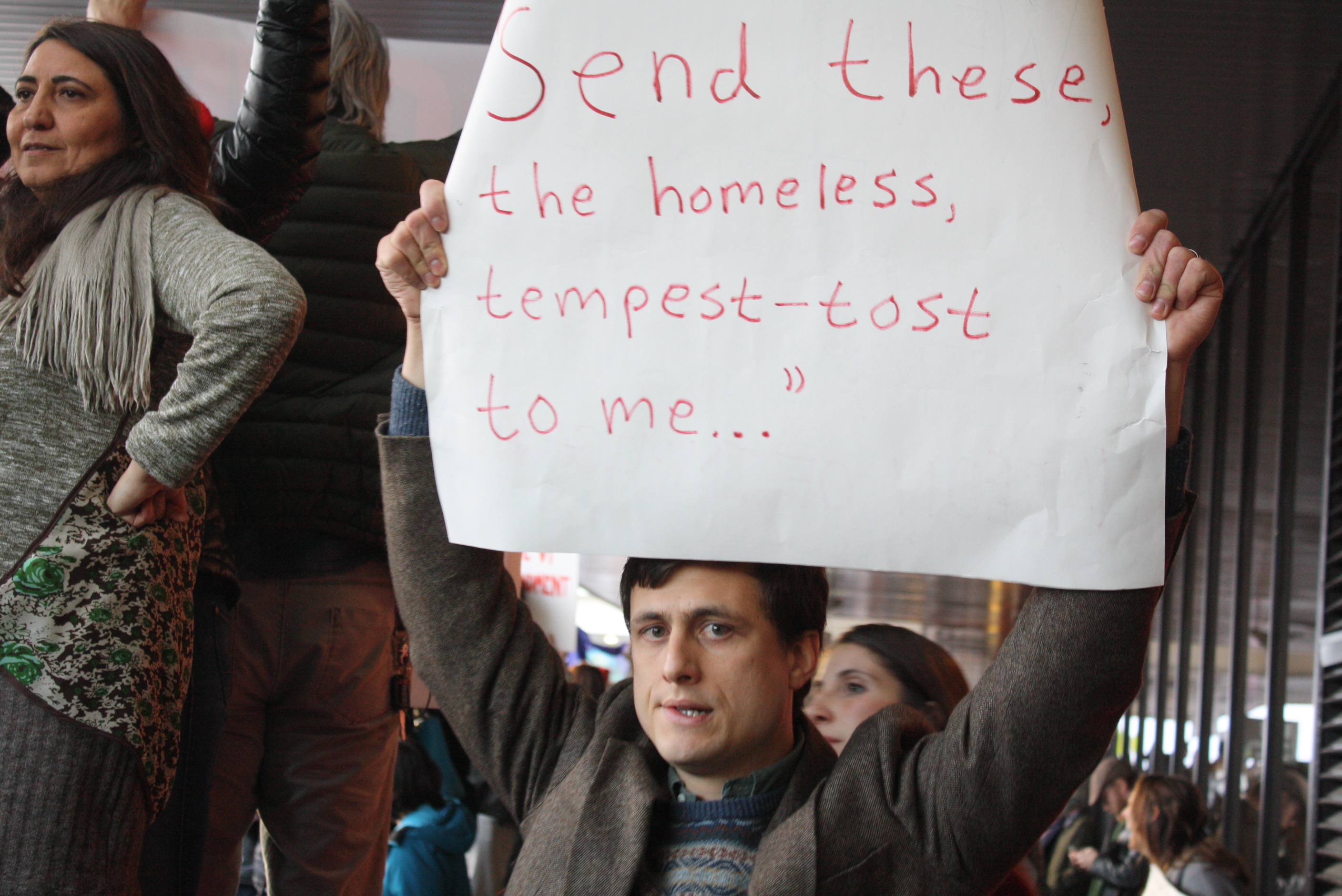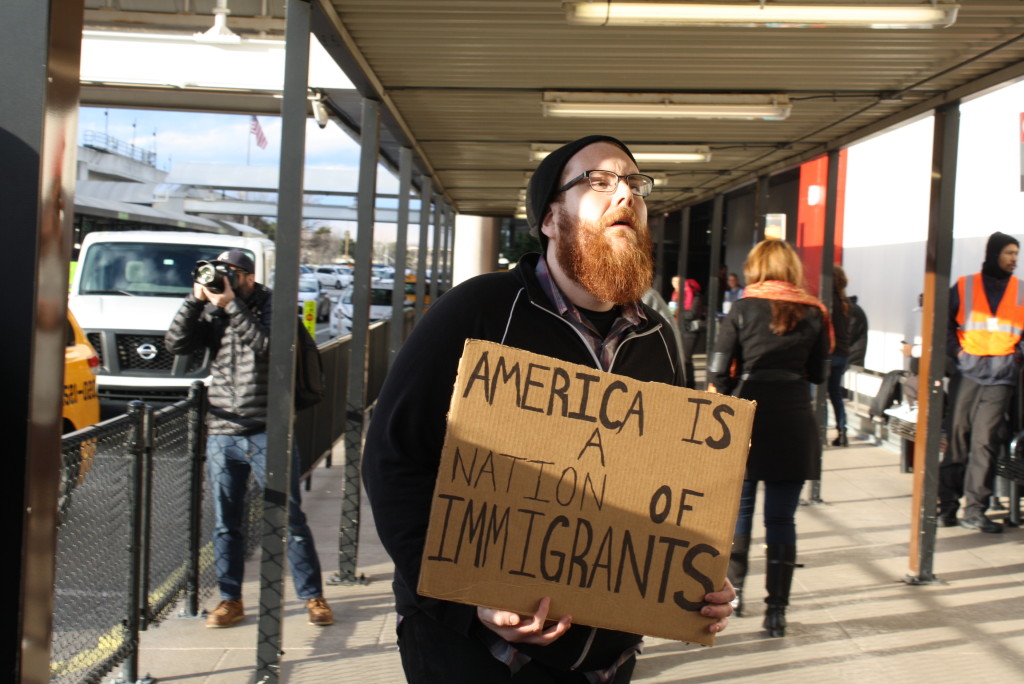The other day, my aunt suddenly embraced my mother with tears flowing down her cheeks. By the end of February, her temporary visa to the U.S. expires and she will return to Pakistan to live with her daughter. This may be her last visit for the next four years.
President Donald Trump signed an executive order Friday afternoon, Jan. 27, to “suspend the U.S. Refugee Admissions Program (USRAP) for 120 days,” and to “suspend entry into the United States, as immigrants and nonimmigrants, of … for 90 days” from Iraq, Syria (including refugees fleeing terrorism), Sudan, Iran, Somalia, Libya and Yemen — countries with majority Muslim populations — with the apparent motive to “protect the American people from terrorist attacks.”
Immediately, people flying to the U.S. from these countries who had already gone through the process of getting their visas, were detained at airports around the country, including Hartsfield-Jackson in Atlanta.
Although Pakistan is not yet on the list, as a country many Americans associate with 9/11, I doubt it will stay this way. I remember discussing my aunt’s visit for years before it actually became a reality last summer because of an “extreme vetting” process that was in place long before Trump took office.
I know Muslim immigrants. To me, they are not the ominous Other, but family members, classmates, teachers, community leaders, and friends. I play basketball with girls from Sudan and Somalia. Underneath the differences in language and culture we are teenagers with similar hopes and worries. My stepdad, who immigrated to the U.S. from Pakistan, taught me most everything I know about animals, cars and the world beyond my own. To have empathy for the Muslims coming to the U.S. for a better life, as Americans we must realize that there is a world beyond our own and that we cannot insulate ourselves from the good or the bad of that world by stereotyping an entire religion.
Hearing that many innocent people, and even refugees themselves fleeing terrorism, will be denied entry to the United States because they call themselves Muslim, angers me — to say the least. If racism and xenophobia are the unfounded weapons President Trump plans to use to bat away terrorism, or at the very least people’s fear of the Other, then we will respond with protest and resistance, with colorful hijabs and Arabic that rolls off the tongue.
This spirit of resistance brought my mother, a friend and me to Atlanta’s Hartsfield-Jackson International on Jan. 29 to protest this “Muslim ban.” Although Trump denies that this is a Muslim ban, the executive order says that those in a minority group in those countries (such as Christians) who are making refugee claims on the basis of religious persecution will still be allowed into the U.S. At the same time, a Syrian refugee who identifies as Muslim will be left behind. This is unacceptable.
Facing both sides of the familiar road where travelers are picked up or dropped off for flights, people of various races, nationalities and religions chanted “Refugees are welcome here, no hate, no fear!” “Love, not hate, makes America great,” and “This is what democracy looks like.”





These are images of individuals at the rally with welcoming signs for Muslim immigrants.
Mixed emotions swept over me: sadness from hearing about the Muslim ban, and hope from being able to stand up and express myself as a member of the Muslim community.
I saw signs taking a new spin on the Martin Niemoller poem:
“First they came for the Socialists, and I did not speak out —
Because I was not a Socialist.
Then they came for the Trade Unionists, and I did not speak out —
Because I was not a Trade Unionist.
Then they came for the Jews, and I did not speak out —
Because I was not a Jew.
Then they came for me — and there was no one left to speak for me.”
Niemoller was a Protestant pastor who lived in Germany during the Holocaust. He supported the Nazis until they began to take the church under government control. For his resistance to this idea, Niemoller too was put in a concentration camp.
Instead, the signs Sunday read, “First they came for the Muslims, and we said NOT TODAY.”
On Feb. 5, the President’s order on immigration was temporarily blocked by a federal appeals court. The court will decide soon whether the ban is legal.
The above photos were taken by the writer
Maya, 16, is a senior at Warith Deen Mohammed High School. She is passionate about journalism, political satire and ice cream.




